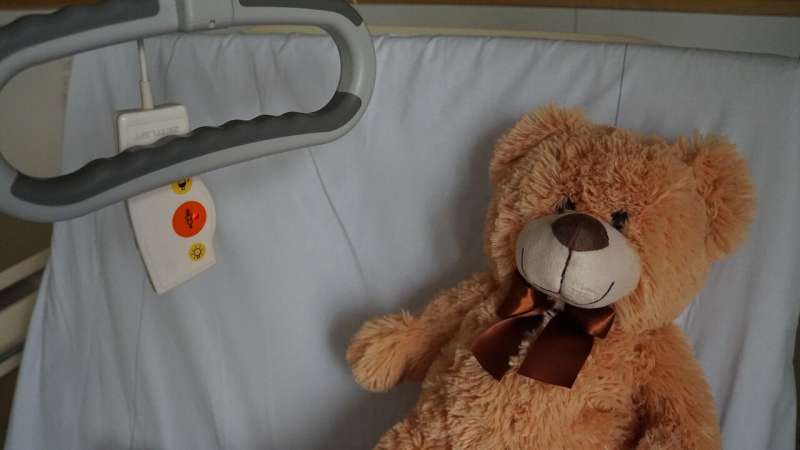Personalized dosing of preparatory drug leads to safer stem cell transplants in children with leukemia

A stem cell transplant can form an important part of treatment for some children with leukemia. Preventing the immune system from rejecting the new stem cells is key to the success of this treatment. To that end, children are pre-treated with a drug called anti-thymocyte globulin (ATG). This drug weakens the immune system so that the new blood stem cells can carry on making healthy blood cells.
In a new study published today in the leading journal The Lancet Haematology, researchers at the Princess Máxima Center for pediatric oncology working with colleagues at the Wilhelmina Children's Hospital studied the effect of personalized dosing of ATG. The research was funded by the pharmaceutical company Sanofi, a manufacturer of this drug, and ZonMw.
Dr. Caroline Lindemans is a pediatrician specialized in stem cell transplants at the Princess Máxima Center and the Wilhelmina Children's Hospital in Utrecht, the Netherlands, and one of the study's co-leading authors. She explains: "The better the immune system recovers after a transplant, the better a child's chances of survival. We suspected that too high a dose and wrong timing of giving a child ATG, one of the drugs that helps prepare for a stem cell transplant, could hinder the recovery of the donor immune cells."
In the past, the dose of ATG was determined on the basis of body weight. In the new study, the number of immune cells before the stem cell transplant is also included in choosing the right dose for each child. The new dosing regime was developed working with dr. Stefan Nierkens, group leader in the Princess Máxima Center.
Some 58 children who received a stem cell transplant between 2015 and 2018 at the Wilhelmina Children's Hospital or the Princess Máxima Center took part in the study. Dr. Rick Admiraal, one of the researchers on the team, compared the immune recovery and survival of these patients with that of children previously treated with the standard dose of ATG.
In 4 out of 5 children, the immune system fully recovered within 100 days of the stem cell transplant. A similar proportion survived for at least 3 years after the stem cell transplant. "That is a clear improvement compared to outcomes with the standard dose," says Admiraal. "There, we saw immune recovery and three-year survival in about two-thirds of children."
Lindemans: "As we had hoped, our results show that an individual dose of ATG leads to better immune recovery. The risk was that the donor stem cells would be rejected in more children, but fortunately that turned out not to be the case. Our research therefore shows: this method of dosing medicines makes stem cell transplants safer."
More information: Rick Admiraal et al, Individualised dosing of anti-thymocyte globulin in paediatric unrelated allogeneic haematopoietic stem-cell transplantation (PARACHUTE): a single-arm, phase 2 clinical trial, The Lancet Haematology (2022). DOI: 10.1016/S2352-3026(21)00375-6
















